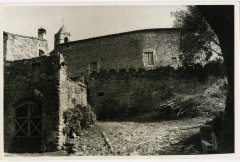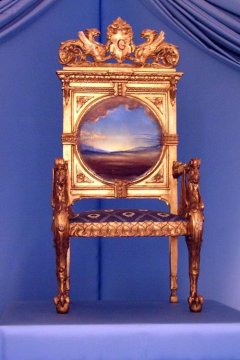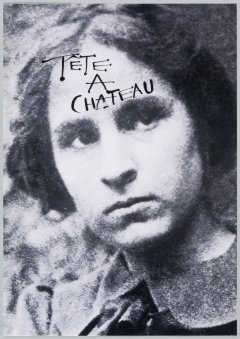At the Gala-Dalí Castle of Púbol, open to the public since 1996, visitors can discover the medieval building in which Gala infuses Salvador Dalí's creativity right down to the finest details, and which goal was to provide Gala with a quiet and secluded place. It was the time passing that determined the transformation of this castle that became, between 1982 and 1984, Salvador Dalí's last studio and finally the mausoleum of his muse.
The basic structure of this building - that already existed in the 11th century- consists of three storey's arranged around a high and narrow courtyard. The castle dates back to the period of splendor of the barony of Púbol in the second half of the 14th century and the beginning of the 15th century.
When Dalí bought the castle in 1969, it was in a very poor state, with collapsed ceilings, substantial cracks and a much neglected yard. However, it gave the house a very romantic atmosphere that the Dalí couple appreciated and tried to retain during the restoration work they undertook. Therefore the outside structure was consolidated but the marks of time were left in order to preserve the old appearance of the house. Salvador Dalí used the walls and semi-collapsed ceilings in a very intelligent way, creating unsuspected spaces of very different sizes. The interior decoration was made of pictorial representations on the walls, false arquitectures, baroque textiles, antiques, romantic symbols, etc. The result is a closed, mysterious, private, austere and sober place, with spaces of great beauty, such as the former kitchen converted into a bathroom or the Piano Room.
Dalí refers to the Castle in his written work: it is interesting to note how in Confessions inconfessables (1973) he presents it as a continuation of Portlligat - precisely through the Round or Oval Room (Gala's place), understood as a space dedicated to his wife and to the ideal of love. This association is clear in the following paragraph:
"Everything celebrates the cult of Gala, even the round room, with its perfect echo that crowns the building as a whole and which is like a dome of this Galactic cathedral. When I walk around this house I look at myself and I see my concentricity. I like its moorish rigour. I needed to offer Gala a case more solemnly worthy of our love. That is why I gave her a mansion built on the remains of a 12th century castle: the old castle of Púbol in La Bisbal, where she would reign like an absolute sovereign, right up to the point that I could visit her only by hand-written invitation from her. I limited myself to the pleasure of decorating her ceilings so that when she raised her eyes, she would always find me in her sky".
Púbol Castle is thus a highly significant place in the Dalinian creation: it is a continuation of Portlligat with a personality of its own. It is Dalí's gift to his wife Gala, to whom he took an oath of allegiance and where he could not gain access without written permission from her. Along with that line we should highlight a handwritten note by Dalí, "Le château de Gala, la Gala du château" (sic), in the book by Jean-Charles Pichon, L'homme et les dieux.
Similarly, in a signed article he refers to Gala and to the Castle:
"I give you a Gothic castle as a gift, Gala.
I accept, with one condition, which is that:
You only come to visit me at the Castle on
invitation. I accept, since I accept
everything in principle, on condition that there are conditions.
It is the same condition as courtly love".








